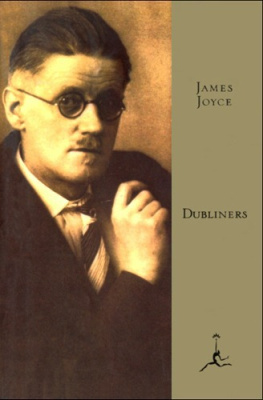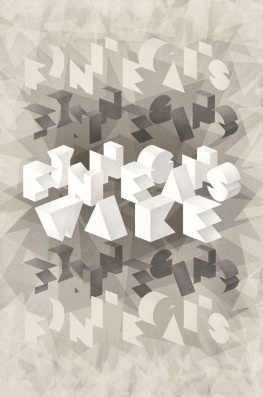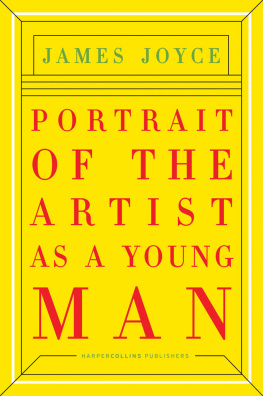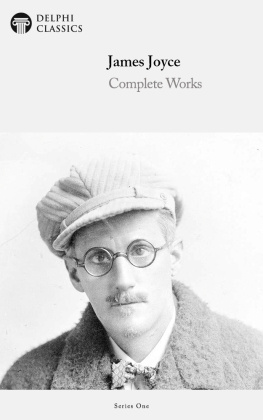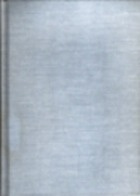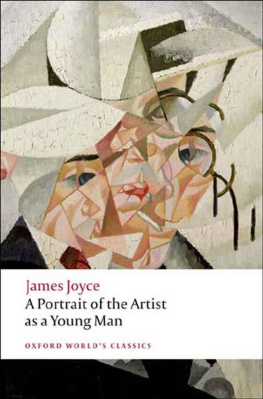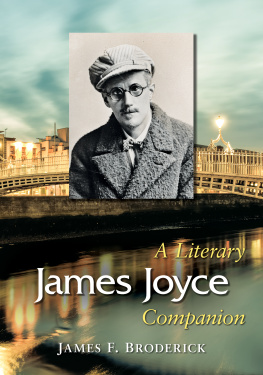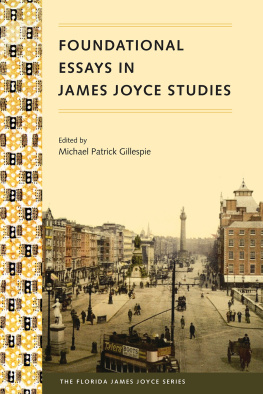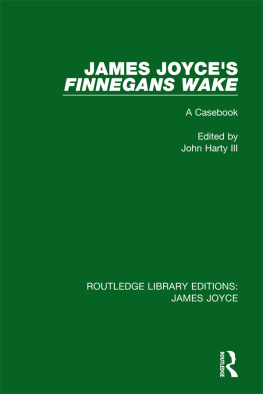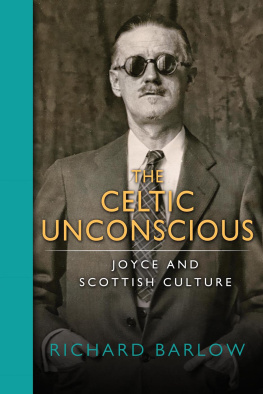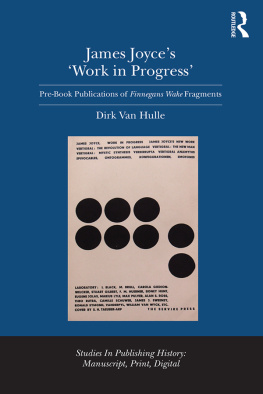James Joyce - Finnegans Wake
Here you can read online James Joyce - Finnegans Wake full text of the book (entire story) in english for free. Download pdf and epub, get meaning, cover and reviews about this ebook. year: 2000, publisher: Penguin Adult, genre: Religion. Description of the work, (preface) as well as reviews are available. Best literature library LitArk.com created for fans of good reading and offers a wide selection of genres:
Romance novel
Science fiction
Adventure
Detective
Science
History
Home and family
Prose
Art
Politics
Computer
Non-fiction
Religion
Business
Children
Humor
Choose a favorite category and find really read worthwhile books. Enjoy immersion in the world of imagination, feel the emotions of the characters or learn something new for yourself, make an fascinating discovery.

- Book:Finnegans Wake
- Author:
- Publisher:Penguin Adult
- Genre:
- Year:2000
- Rating:4 / 5
- Favourites:Add to favourites
- Your mark:
- 80
- 1
- 2
- 3
- 4
- 5
Finnegans Wake: summary, description and annotation
We offer to read an annotation, description, summary or preface (depends on what the author of the book "Finnegans Wake" wrote himself). If you haven't found the necessary information about the book — write in the comments, we will try to find it.
Finnegans Wake — read online for free the complete book (whole text) full work
Below is the text of the book, divided by pages. System saving the place of the last page read, allows you to conveniently read the book "Finnegans Wake" online for free, without having to search again every time where you left off. Put a bookmark, and you can go to the page where you finished reading at any time.
Font size:
Interval:
Bookmark:
PENGUIN BOOKS
Finnegans Wake
James Joyce was born in Dublin on 2 February 1882. He was the oldest often children in a family which, after brief prosperity, collapsed into poverty. He was none the less educated at the best Jesuit schools and then at University College, Dublin, where he gave proof of his extraordinary talent. In 1902, following his graduation, he went to Paris, thinking he might attend medical school there. But he soon gave up attending lectures and devoted himself to writing poems and prose sketches and formulating an aesthetic system. Recalled to Dublin in April 1903 because of the fatal illness of his mother, he circled slowly towards his literary career. During the summer of 1904 he met a young woman from Galway, Nora Barnacle, and persuaded her to go with him to the Continent, where he planned to teach English. The young couple spent a few months in Pola (now in Croatia), then in 1905 moved to Trieste, where, except for seven months in Rome and three trips to Dublin, they lived until June 1915. They had two children, a son and a daughter. Joyces first book, the poems of Chamber Music, was published in London in 1907 and Dubliners, a book of stories, in 1914. Italys entrance into the First World War obliged Joyce to move to Zrich, where he remained until 1919. During this period he published A Portrait of the Artist as a Young Man (1916) and Exiles, a play (1918). After a brief return to Trieste following the armistice, Joyce determined to move to Paris so as to arrange more easily for the publication of Ulysses, a book on which he had been working since 1914. It was, in fact, published on his birthday in Paris in 1922 and brought him international fame. The same year he began work on Finnegans Wake, and though much harassed by eye troubles and deeply affected by his daughters mental illness, he completed and published that book in 1939. After the outbreak of the Second World War, he went to live in unoccupied France, then managed to secure permission, in December 1940, to return to Zrich, where he died on 13 January 1941. He was buried in the Fluntern Cemetery.
Seamus Deane is General Editor for the works of James Joyce in Penguin. He is Keough Professor of Irish Studies at the University of Notre Dame, Indiana.
JAMES JOYCE
__________
WITH AN INTRODUCTION BY SEAMUS DEANE

PENGUIN BOOKS
PENGUIN BOOKS
Published by the Penguin Group
Penguin Books Ltd, 80 Strand, London WC2R 0RL, England
Penguin Putnam Inc., 375 Hudson Street, New York, New York 10014, USA
Penguin Books Australia Ltd, 250 Camberwell Road, Camberwell, Victoria 3124, Australia
Penguin Books Canada Ltd, 10 Alcorn Avenue, Toronto, Ontario, Canada M4V 3B2
Penguin Books India (P) Ltd, 11 Community Centre, Panchsheel Park, New Delhi 110 017, India
Penguin Books (NZ) Ltd, Cnr Rosedale and Airborne Roads, Albany, Auckland, New Zealand
Penguin Books (South Africa) (Pty) Ltd, 24 Sturdee Avenue, Rosebank 2196, South Africa
Penguin Books Ltd, Registered Offices: 80 Strand, London WC2R 0RL, England
www.penguin.com
First published in Great Britain by Faber and Faber 1939
Published in the USA by The Viking Press 1939
Published in Great Britain, with a new introduction, in Penguin Books 1992
Reprinted in Penguin Classics 2000
11
Introduction copyright Seamus Deane, 1992
All rights reserved
The moral right of the editor has been asserted
Except in the United States of America, this book is sold subject to the condition that it shall not, by way of trade or otherwise, be lent, re-sold, hired out, or otherwise circulated without the publishers prior consent in any form of binding or cover other than that in which it is published and without a similar condition including this condition being imposed on the subsequent purchaser
FINNEGANS WAKE |
The first thing to say about Finnegans Wake is that it is, in an important sense, unreadable. In order to pay it the attention it so impertinently and endlessly demands, the reader must forego most of the conventions about reading and about language that constitute him/her as a reader. The advantage to be gained from doing so is considerable; the conventions survive but they are less likely thereafter to dwindle into assumptions about what reading or writing is. Joyces last great work is an extraordinary performance, a transcription into a miniaturized form of the whole western literary tradition; it is Joyces outstanding mastery of that form and his amazing powers of transcription that show this to be an unrepeatable, solo performance that need, in a sense, only be looked at rather than read to provide a sufficient impression of its radical, unique status. It is difficult to say that the Wake is a novel; equally difficult to deny it. Few works erase the author as individual voice and genius more effectively; none affirms that role more loudly and scandalously. It is a book that opens itself to all of history, culture and experience; yet no book is more closely imprisoned within a conception of art as a specialized activity that relies for its preservation and interpretation on a cadre of dedicated specialists. The Wake has a narrative drive that allows us to believe that it has within it one governing and completed story; but it also has so many digressions and repetitions that it is only with some desperation that the reader can sustain a belief in the primacy of this narrative impetus. When its primacy comes into question, then the whole issue of what is central and what is digressive arises with such force that the practice of reading for the story has to be abandoned. These conflicts are deeply embedded in the various traditions, literary and historical, that Joyce inherited and elaborated, but no writer excavated them with a comparable thoroughness and glee.
The language of the Wake is a composite of words and syllables combined with such a degree of fertile inventiveness that new sounds and new meanings are constantly ingeminated. Joyce involves himself and us in an extremely complex series of translations that are endless because there is no original and no target language to supply a limit to the visual and sonar transactions that are negotiated by the text. Indeed, it may be that the only assumption that permits us to embark upon the activity of translation is itself the source of the works conflictual and prolific nature viz. that the original language is the target language. The book is written in the English language and also against the English language; it converts itself into English and perverts itself from English. In the process it crosses and re-crosses the spectrum from sheer noise the hundred-letter word that signifies the annunciatory thunder that presages the fall into language and culture to polyglottic babbling to lucid and lyric sense. It forces the reader to pay attention to the various genealogies of words and their functions how they are, in the most basic sense, composed of letters and combined into syllables, how they are heard and how they are seen, what historical weight and valencies they bear, what psychological, political and social functions they perform, their proximity to and their distance from grunts and noises, their liberating and their repressive effects, their dependence upon syntax and grammar and their capacity to generate meaning, wildly and anarchically, when freed from those systems of governance and communication.
Sometimes a single word, or part of a word, can present the reader with a problem; sometimes the unit that causes trouble may be a sentence, a paragraph, a whole interlude, a section, the relation of one Part to another within the whole work. It may be that the smallest problematic detail is an instance of the largest architectonic problems the work poses. Many readers of the
Next pageFont size:
Interval:
Bookmark:
Similar books «Finnegans Wake»
Look at similar books to Finnegans Wake. We have selected literature similar in name and meaning in the hope of providing readers with more options to find new, interesting, not yet read works.
Discussion, reviews of the book Finnegans Wake and just readers' own opinions. Leave your comments, write what you think about the work, its meaning or the main characters. Specify what exactly you liked and what you didn't like, and why you think so.

